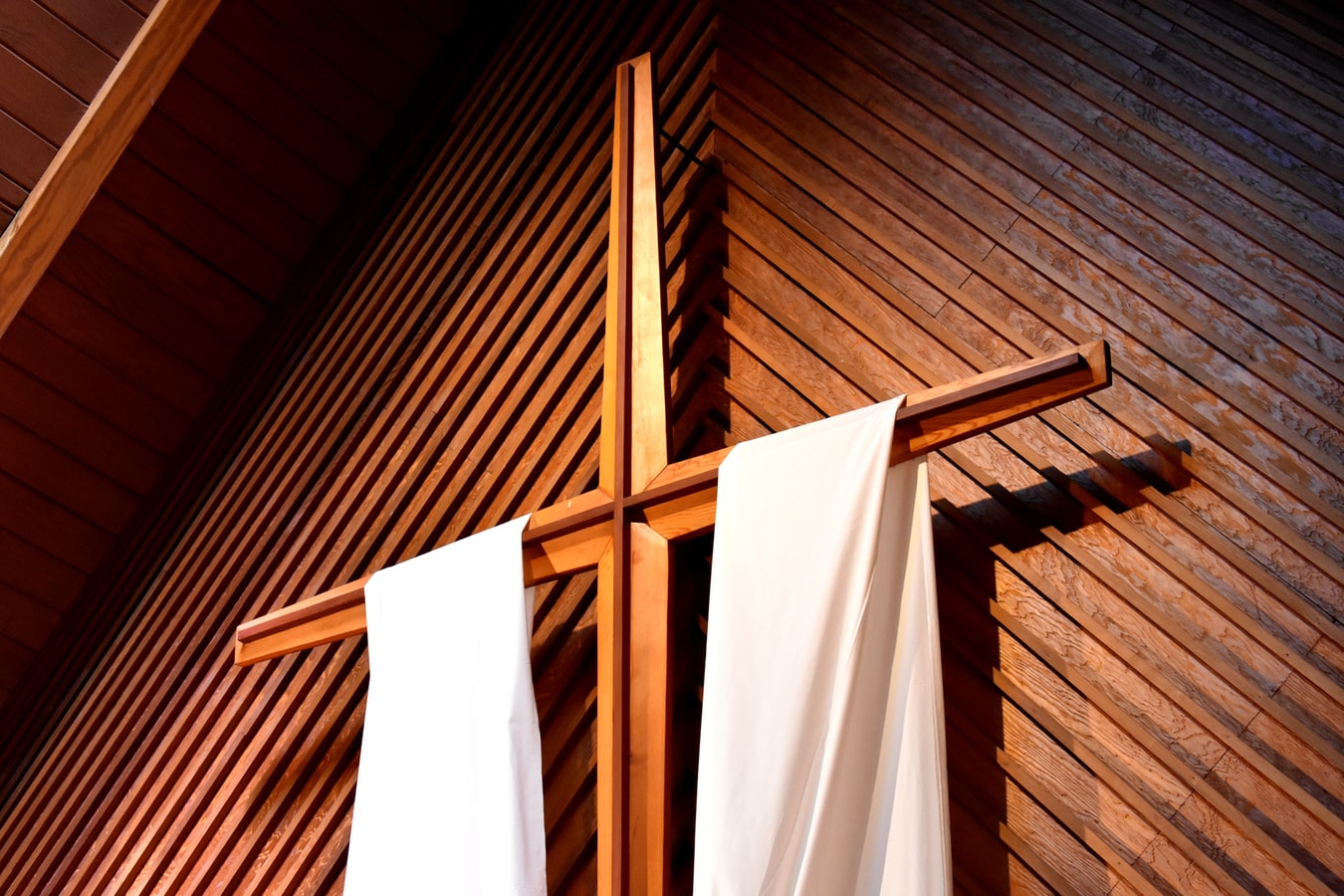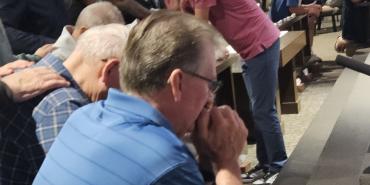5 Ways to Be Who We Are

How can we as Nazarenes understand what it means to be Nazarene? We are people who are not just separated from something, but we are connected to something. Here are five aspects of our theology and heritage that connect us as partners in faith.
1. Embrace our Wesleyan heritage.
One of the best things we can do is to embrace our Wesleyan heritage, connect to compassionate ministries, and be missional. It is encouraging to see local churches forming meaningful partnerships in their communities and launch their own missional ministries.
We understand what it means to engage in mission and think in terms of social holiness. Our personal holiness calls us to move forward, not to sit still. Reaching lost and broken people, because we are filled with the Spirit, enables us to render effective service, particularly in terms of meeting physical and emotional needs.
I am encouraged by the emerging generation and their rediscovery of evangelism.
2. Understand the Bible theologically.
Another aspect of our Wesleyan heritage involves us doing a better job of helping our people know how to interpret Scripture. Kevin Rector, pastor of Liberty Church of the Nazarene in Vilonia, Arkansas, took time to teach his people how to read the Bible theologically. He bought everyone a Bible, and they read together weekly. Then, he preached on certain passages. It helped them understand that they didn’t have to get hung up on certain cultural things related to a certain biblical era, but could see the Bible for what it truly is—God’s Word to us, across cultures and eras.
We need to help people read the Bible theologically rather than as a science or history book.
People usually look at churches because of programs or ministries. Most Nazarene laypeople may not be giving much thought to theology. It is troublesome that so many of our pastors are reading from popular authors who may use the same terms we use, but define them differently from us and our theology.
Media refers to evangelicals and fundamentalists interchangeably. We are not fundamentalists. If we’re not careful, we’ll buy into theological thought where we become more interested in being evangelical than being holiness people.
3. Focus on relationships vs. rules.
It is impacting to enable people to see that our faith is about relationships rather than just rule-keeping. The restoration of the image of God is to be in right relation with Him, with our brothers and sisters, and with ourselves. The relationship aspect of Wesleyan theology moves us beyond the rule-keeping we have been known for in certain places and in certain time periods.
The danger is in trying to put everyone into the same pattern or mold of experience. If we expect a ministerial candidate or layperson to explain a certain spiritual experience when we ask about their second crisis, for example, we don’t give them the opportunity to be unique in Christ. The result is some may prematurely testify to the Spirit’s filling because they are in a different place on their faith journey.
We don’t hear testimonies anymore. Let’s rediscover their power; our young people need to hear them. Find ways for people of all ages in the church to hear one another share stories of faith.
4. Move beyond individual holiness.
Then, let’s tie holiness to mission where it becomes the impetus for mission—getting outside the walls of the local church. Present the message of holiness in fresh ways that are not just relevant but will be heard—in metaphors that are relevant. “Lordship” terms are hard.
Imaginative language can help younger generations get a handle—where it’s not related to terms that are outdated—and where they can envision it. Theology is dynamic.
We have to keep working at using imagery that connects with emerging generations but remains true to the core of the biblical message. Rediscovery of our Wesleyan heritage moves us beyond individual holiness to missional engagement.
5. Become outwardly-focused congregations.
Unfortunately, some congregations are inwardly-focused. Some pastors, at great risk, are trying to shake up things so it’s not just about “us” or the next potluck. We have pastors calling people to be the people of God in their communities. These pastors are going out into the communities to listen, and then ask, “How may we serve you?”
Mark Snodgrass is pastor of Bentonville, Arkansas, Church of the Nazarene. The DNA of that congregation has changed in the last few years. The church established a missional partnership with the El Factor Church of the Nazarene community in the Dominican Republic. Members from the Bentonville congregation went there not just to do a swoop-in mission trip, but also held a baseball camp and added a floor to a child development center and expanded classroom space. Now, the facility has space for ministry to 160 children.
Following their mission experience in the Dominican Republic, Bentonville Nazarenes came home and looked for partnerships in their community. For example, now they have a compassionate ministry center where they distribute food, clothing, and offer biblical counseling and life coaching. Also, they connect with a transitional housing facility for single mothers and their children, partner with Habitat for Humanity, and supply snack packs, back packs, and shoes at a neighboring middle school for economically disadvantaged students.
Pastor Mark shares, “We hosted students at our church one evening and had a great group of volunteers who washed their feet, placed new socks on them, and then gave each of the students a new pair of shoes. It was a great way to build relationships with people in our community.”
Before this, they were growing as an attractional church. Now, they are missional in how they do church.
They find that service to others is an effective means of living out their faith. Disciples are made not only sitting in a classroom or church service, but also are formed when they combine biblical understanding with service to others.
In Searcy, Arkansas, Randall Beaty pastors the Church of the Nazarene. A church near them, in Garner, was closed. We had that church building for sale and were not able to sell it due, in part, to Garner being an impoverished area. A while back, a highway was built that took Garner off the main path. Businesses closed. Not much was available in the community for children.
Now, Randall’s sister, Ava Ladler, goes to Garner on Sunday afternoons along with other people from the Searcy church. They meet in the old Garner church building and provide a service geared to children with puppets, music, and other ministry tools.
The Searcy group noticed people in Garner (the area has 300-400 people) were going hungry, so they have been feeding them when they go there on Sundays.
It is an answer to what to do with a building, and is a way for the Searcy congregation to meet real needs in a neighboring town.
They have witnessed great results in a short amount of time. Those involved from Searcy have been re-energized spiritually.
In El Paso, Arkansas, Ron Riddle pastors the Crossroads Cowboy Church of the Nazarene. Ron was pastoring on the district. I had a vision and spoke to Ron about it, which led to starting a cowboy church. Understandably, targeting one group may seem counter-intuitive to the universal appeal of the gospel. However, we are learning that reaching people for Christ in ways that appeal to their understanding of God and their areas of interest is vitally important.
Ron is a roper, a true cowboy, and has relationships built with that underserved group. They had a community-interest meeting where 56 people attended. Those folks wouldn’t leave the meeting until Ron promised to start a church. The next Sunday night 60 people showed up for their first service. They met on Sunday evenings from April to November in a pole barn. People brought lawn chairs and spread out on the ground. By last November they were running 150, and baptized about 25 new believers in the livestock watering tank. This church started with 240 charter members.
The cowboy church concept is a church geared toward those who embrace the Western U.S. culture, with a laid back come-as-you-are approach, often connected to arena and rodeo events. It’s no different than any other church using means of interest to get people involved in the fellowship of a church. Here, they have hay bales for the altar.
People come, partially, for the cowboy band that plays. They don’t want to sing; they come to listen. Ron tells me, “A lot of times people come to cowboy church for all the wrong reasons. They come for the cowboy environment, events, music. But once they get there, and the gospel is presented, they are receptive. This culture believes in God but they haven’t been taught about Jesus Christ. When they hear about the Way, the Truth, and the Life, they are receptive.”
The church people chartered a bus and drove four hours across the state to attend the Sunday night service at district assembly. We’ve invested in them as a district and they are seeing the denomination as a partner.
God blesses our steps of faith when we act obediently on what He calls us to do.
Randy Berkner is superintendent of the North Arkansas District for the Church of the Nazarene.
Please note: All facts, figures, and titles were accurate to the best of our knowledge at the time of original publication but may have since changed.




